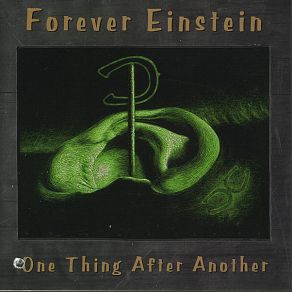One Thing After Another
Download links and information about One Thing After Another by Forever Einstein. This album was released in 1998 and it belongs to Rock, Progressive Rock genres. It contains 12 tracks with total duration of 56:32 minutes.

|
|
|---|---|
| Artist: | Forever Einstein |
| Release date: | 1998 |
| Genre: | Rock, Progressive Rock |
| Tracks: | 12 |
| Duration: | 56:32 |
| Buy it NOW at: | |
| Buy on iTunes $9.99 | |
| Buy on iTunes $9.99 | |
Tracks
[Edit]| No. | Title | Length |
|---|---|---|
| 1. | Big Sky Mind | 4:32 |
| 2. | The Girl with the Flame Maple Chest (and Black Walnut Drawers) | 3:47 |
| 3. | Oh, Lord, Please Bless This Rocket House and All Those Who Live in the Rocket House | 4:25 |
| 4. | Curly, Get the Ladder | 5:11 |
| 5. | Toy Boat Attacked by Toy Pirates on Real Water | 5:46 |
| 6. | Maniacs from the Fourth Dimension | 4:21 |
| 7. | Bad Weather (Changed Our Plans) | 7:31 |
| 8. | On a Bright, Clear Dayin January, 1965, We Went Walking Together | 5:07 |
| 9. | Stand Back, You Bloated Museum of Treachery! | 5:34 |
| 10. | City of Industry / Garden of Ruins | 4:36 |
| 11. | The Pancake Song | 4:50 |
| 12. | Untitled Bonus Track | 0:52 |
Details
[Edit]There's something about the music on this CD which conjures up visions of the American heartland and simpler times — the days and tunes of Duane Eddy ("the twang's the thang"), Santo and Johnny's "Sleepwalk," Les Paul, Chet Atkins, a touch of the Ventures and surf-rocker Dick Dale, and when guitarist C.W. Vrtacek cranks up the reverb on his vintage Fender Telecaster, perhaps a hint of Link Wray. The early Grateful Dead even emerges as a touchstone from time to time, as other trio members John Roulat (drums) and Jack Vees (bass/second guitar) slip into a funky blues shuffle beat, and Vrtacek stretches out and rides the groove like a young Jerry Garcia. Of course, the late '50s and early '60s are long gone, and I suspect that the last thing Forever Einstein wants to be known as is an oldies nostalgia band, so this collection of eleven tunes is suitably warped with lots of tongue-in-check musical subtexts and modernisms — abrupt shifts in key and tempo, incongruous bridges and other musical gestures in all sorts of directions, plus a mildly self-conscious, cerebral quality which is played off against the downhome licks and surface simplicity. A fine line is being walked here, and a few purists may regard Forever Einstein's schtick as irreverent pastiche, but hey — you can't really go home again, and for sophisticated listeners with any fondness for clean, clear guitar pop 1990s style, this CD will be a treat of the first order.